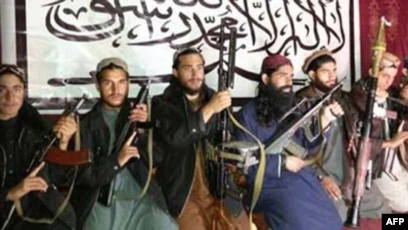
As Pakistan approaches its 77th Independence Day, the country continues to be viewed in the eyes of many around the world as a country plagued by violence and terror. The Pakistani deep state’s decades long policy of harboring terror groups that attack Pakistan’s neighbors has worsened the country’s internal security as these groups have in recent years chosen to attack within Pakistan.
One such group is Tehreek-e-Labbaik Pakistan (TLP), a Barelvi-affiliated outfit that since its inception has instigated violence, openly supported killings of Pakistani and foreign leaders, and has periodically forced the state to acquiesce to its demands. The latest issue has been the TLP’s threat to Chief Justice Qazi Faez Isa and the government has initiated a crackdown against the leadership of the Tehreek-i-Labbaik Pakistan (TLP). Unfortunately, it remains to be seen how effective it will be and whether the government remains firm in its decision.
As security analyst, Muhammad Amir Rana notes, however, “TLP’s threats to the judiciary are not new; neither has it spared the top military brass in the past in its hatemongering. One of its founders, Pir Afzal Qadri, had threatened the judges of the Supreme Court and incited soldiers to stand against generals if Aasia Bibi (accused of blasphemy but later acquitted) was not hanged publicly. He made this statement in the presence of Khadim Rizvi, the co-founder of the group, in 2018. Rizvi had used similarly strong language against the judiciary and military leadership, besides igniting religious bigotry. The state institutions acted swiftly after the TLP leadership’s statements became louder. The group’s top leadership, including Rizvi and Qadri and thousands of its workers, were arrested.”
Yet, “a few months later, Rizvi was granted bail by the Lahore High Court and released from jail. He did not take a break and restarted his hate campaign. He secured over two million votes in the 2018 elections. Many political analysts had linked his release with the election, but the biggest challenge was the TLP’s rise and its hate-filled campaigns.”
After the death of Khadim Rizvi, his son Saad “built up further momentum, and marched on Islamabad in April 2021 to demand the expulsion of the French ambassador from the country. TLP zealots killed several policemen, Saad Rizvi was arrested and the party banned. The situation took another turn when the TLP launched a nationwide protest for the release of its leader. The protests became violent, forcing the government to release all TLP leaders and workers. Later, in November 2021, even the demand to lift the ban on the party was accepted.”
As Rana warns, the Pakistani “state has yet to adopt a straightforward approach to dealing with the TLP. Since the TLP’s inception, it has accepted all its demands, including controversial ones, to convince its leadership to end their protest. However, the state used such agreements only to find a temporary solution to end the protests; this, eventually, strengthened the group.”
In conclusion Rana asks, “why does the state compromise after taking decisive action against the group? Why is it tolerating a group, which is responsible for vandalism, the killing of innocent citizens and security officials, damaging property, blotting the country’s international image, and being a source of extremism?.”
![]()





